Coconut Flour is a fantastic wheat alternative for anyone with a gluten intolerance. Pumped with nutrients it tastes just like regular flour with a hint of coconut.
Use NUA Naturals Coconut Flour to thicken sauces, soups, gravy or yoghurts. It can also be used to coat foods before frying and is perfect to add to smoothies, porridge, or casseroles.
Remember when substituting coconut flour for all-purpose flour to do it at a 1:4 ratio!
Made from 100% Coconut, our Coconut Flour is sourced with respect for nature from the Philippines. It has been certified organic by both the Irish Organic Association and the European Commission.
How to use Coconut Flour:
Our Coconut Flour is a splendidly superb replacement to the regular humdrum flours out there and can be used as an alternative to basically any other wheat or gluten flour that may be required for a recipe but there are some differences to remember when you’re adopting a recipe. If you’re baking with it, keep in mind these tips and tricks:
- When substituting coconut flour for all-purpose flour to do it at a 1:4 ratio.
- Every ¼ cup of coconut flour typically requires 1 egg, so you’ll need more eggs than usually to give the bake structure and moisture.
- You might want to increase other liquids in the recipe because coconut flour is very absorbent (try adding 2 extra tablespoons than the recipe recommends).
- You may want to make small adjustments to baking times
When you’re first starting to bake with our Coconut Flour, we recommend following recipes that are created for this kind of flour especially like these:
Coconut Flour is a super handy product to have in the kitchen cupboard. If you’re not baking with it, it can be used as a gluten free and vegan suitable ingredient to thicken sauces, soups, gravys or yoghurts. It can be used to coat foods before frying and it’s also perfect to add to smoothies, porridge, or casseroles.
Coconut Flour Nutritional Information (per 100g):
| Energy |
233 (Kcal) / 976 (KJ) |
| Protein |
19.2 (g) |
| Carbohydrates |
20.8 (g) |
| − of which sugars |
18.7 (g) |
| Fat |
8.1 (g) |
| − of which saturates |
7.54 (g) |
| Fibre |
41.6 (g) |
| Sodium |
0.08 (g) |
*Recommended Daily Allowance
Ingredients:
Our Coconut Flour is made from 100% Coconut Flour, sourced with respect for nature from the Philippines. It has been certified organic by both the Irish Organic Association and the European Commission (you can identify whether or not products are certified organic by finding the logos on the packaging!). This product is also suitable for our vegetarian and vegan customers to consume.
Allergens:
This product may contain traces of nuts.
Only logged in customers who have purchased this product may leave a review.

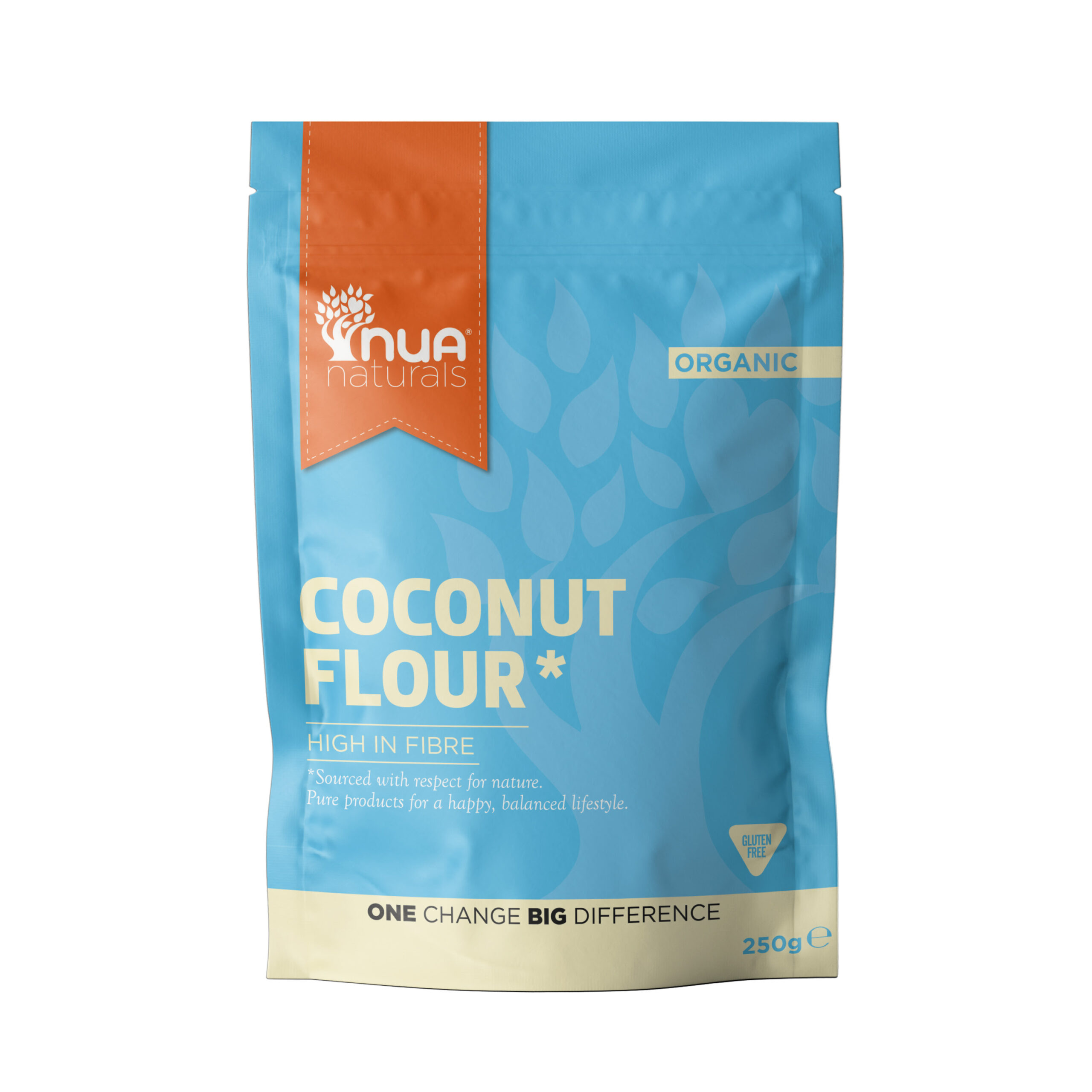

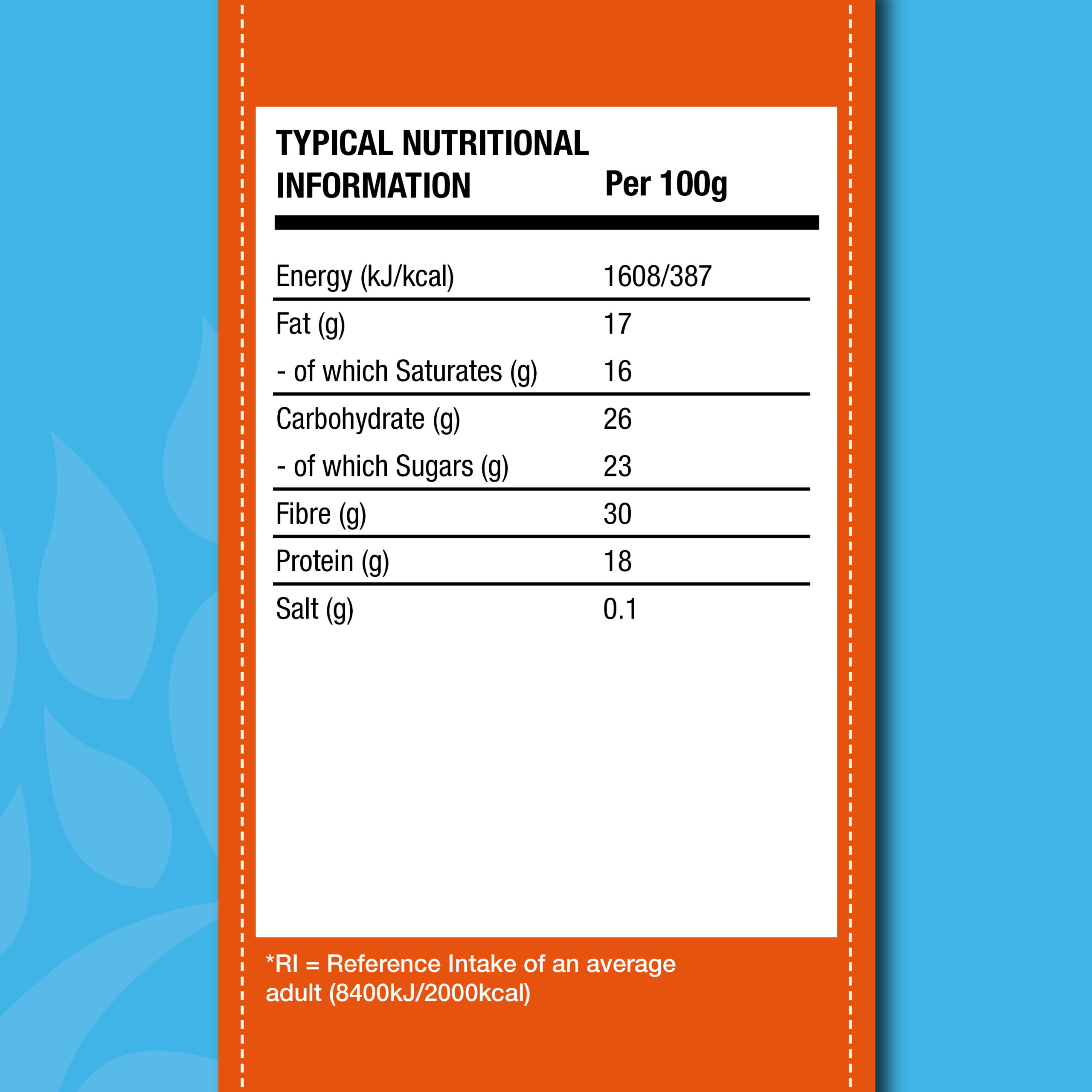
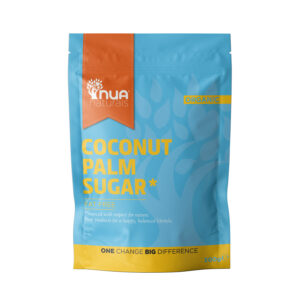
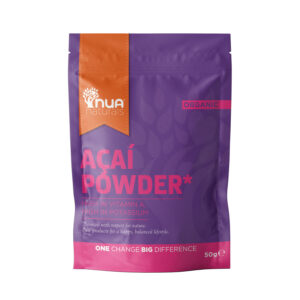
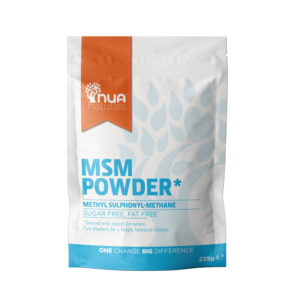
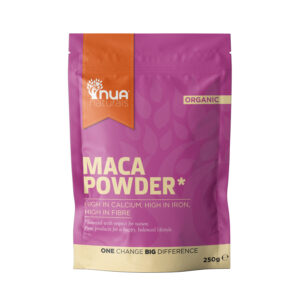


Reviews
There are no reviews yet.